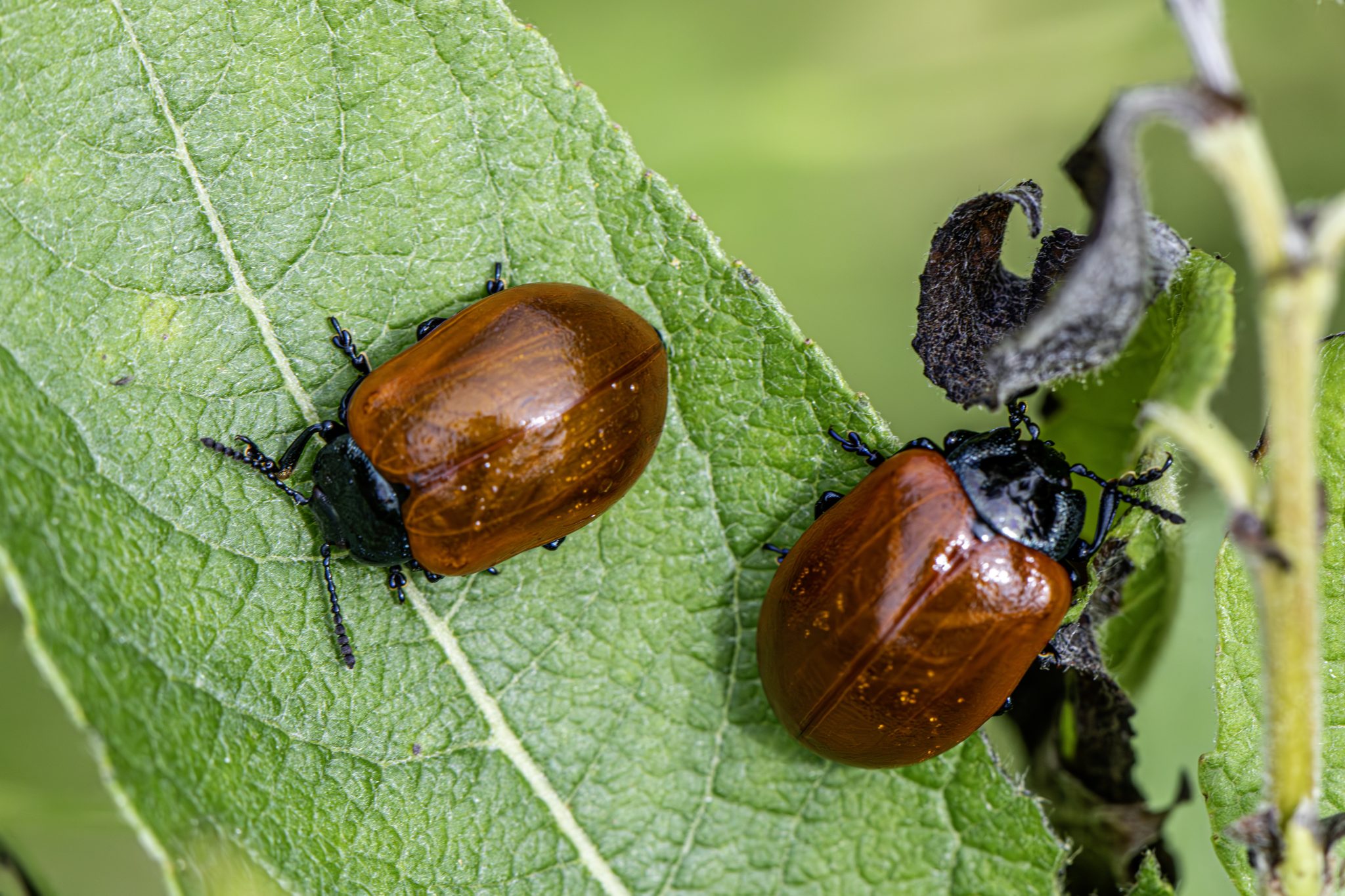Red Poplar Leaf Beetle (Chrysomela populi)
Family: Chrysomelidae
Subfamily: Chrysomelinae
Common names: Red poplar leaf beetle, Poplar leaf beetle
🐞 Identification
- Size: 9–13 mm in length
- Color:
- Elytra (wing covers): Bright red to orange-red, sometimes slightly glossy
- Pronotum and head: Deep black or dark blue, creating a strong contrast
- Shape: Broadly oval, slightly convex body
- Antennae: Relatively short and segmented
This striking red beetle is easily visible on its preferred host plants, often in clusters.
🌿 Habitat
- Found in forests, riparian woodlands, tree-lined avenues, and parks
- Strongly associated with poplars and willows, especially:
- Black poplar (Populus nigra)
- White poplar (Populus alba)
- Aspen (Populus tremula)
- Willow (Salix spp.)
🍃 Diet
- Adults and larvae feed on the leaves of poplar and willow trees
- Skeletonize the leaves by eating soft tissues, leaving veins intact
- Can cause significant defoliation during outbreaks
🔁 Life Cycle
- Overwinters as an adult in leaf litter or under bark
- Breeding season: Begins in spring (April–May)
- Eggs: Laid in clusters on the underside of leaves
- Larvae:
- Black with a slightly rough texture
- Feed gregariously on leaves
- Pupation: Occurs on or near host plants
- One to two generations per year, depending on climate
🌍 Distribution
- Widespread in Europe, extending into:
- Western and Central Asia
- North Africa
- Introduced in parts of North America
- Especially common in temperate regions with ample poplar trees
🧬 Ecological Role
- Plays a role in regulating poplar tree growth, though heavy infestations may stress trees
- Prey for insectivorous birds, parasitic wasps, and predatory beetles
❗ Potential Impact
- In plantations or urban areas, large populations can damage ornamental or commercial poplars
- Rarely fatal to trees, but may reduce vigor and photosynthetic capacity
✅ Fun Facts
- The beetle’s bright coloration may serve as aposematic (warning) coloration, deterring predators
- When disturbed, it can emit a foul-smelling chemical as a defense mechanism
The Red Poplar Leaf Beetle (Chrysomela populi) is a bold, beautiful, and ecologically significant leaf beetle with a specialized diet and a preference for riparian and urban woodlands.
Visited 56 times, 1 visit(s) today
Views: 2360
